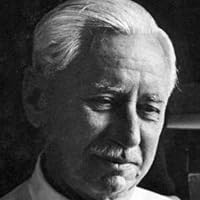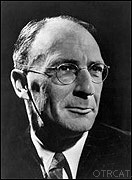Liberal Arts Quotes
Quotes tagged as "liberal-arts"
Showing 1-30 of 50

“Why not spend that time on art: painting, sculpting, charcoal, pastel, oils? Are words or numbers more important than images? Who decides this? Does algebra move you to tears? Can plural possessives express the feelings in your heart? If you don't learn art now, you will never learn to breathe!”
― Speak
― Speak
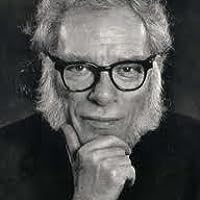
“In a properly automated and educated world, then, machines may prove to be the true humanizing influence. It may be that machines will do the work that makes life possible and that human beings will do all the other things that make life pleasant and worthwhile ”
― Robot Visions
― Robot Visions
“Scholars have argued that without humanism the Reformation could not have succeeded, and it is certainly difficult to imagine the Reformation occurring without the knowledge of languages, the critical handling of sources, the satirical attacks on clerics and scholastics, and the new national feeling that a generation of humanists provided. On the other hand, the long-term success of the humanists owed something to the Reformation. In Protestant schools and universities classical culture found a permanent home. The humanist curriculum, with its stress on languages and history, became a lasting model for the arts curriculum.”
― The Age of Reform 1250-1550: An Intellectual and Religious History of Late Medieval and Reformation Europe
― The Age of Reform 1250-1550: An Intellectual and Religious History of Late Medieval and Reformation Europe
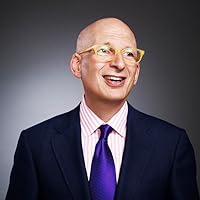
“The competitive advantages the marketplace demands is someone more human, connected, and mature. Someone with passion and energy, capable of seeing things as they are and negotiating multiple priorities as she makes useful decisions without angst. Flexible in the face of change, resilient in the face of confusion. All of these attributes are choices, not talents, and all of them are available to you.”
― Linchpin: Are You Indispensable?
― Linchpin: Are You Indispensable?

“It could be said that a liberal education has the nature of a bequest, in that it looks upon the student as the potential heir of a cultural birthright, whereas a practical education has the nature of a commodity to be exchanged for position, status, wealth, etc., in the future. A liberal education rests on the assumption that nature and human nature do not change very much or very fast and that one therefore needs to understand the past. The practical educators assume that human society itself is the only significant context, that change is therefore fundamental, constant, and necessary, that the future will be wholly unlike the past, that the past is outmoded, irrelevant, and an encumbrance upon the future -- the present being only a time for dividing past from future, for getting ready.
But these definitions, based on division and opposition, are too simple. It is easy, accepting the viewpoint of either side, to find fault with the other. But the wrong is on neither side; it is in their division...
Without the balance of historic value, practical education gives us that most absurd of standards: "relevance," based upon the suppositional needs of a theoretical future. But liberal education, divorced from practicality, gives something no less absurd: the specialist professor of one or another of the liberal arts, the custodian of an inheritance he has learned much about, but nothing from.”
― The Unsettling of America: Culture and Agriculture
But these definitions, based on division and opposition, are too simple. It is easy, accepting the viewpoint of either side, to find fault with the other. But the wrong is on neither side; it is in their division...
Without the balance of historic value, practical education gives us that most absurd of standards: "relevance," based upon the suppositional needs of a theoretical future. But liberal education, divorced from practicality, gives something no less absurd: the specialist professor of one or another of the liberal arts, the custodian of an inheritance he has learned much about, but nothing from.”
― The Unsettling of America: Culture and Agriculture
“Max sent Scottie some literary advice, the same dictum he gave every college student who called on him. He stressed the importance of a liberal arts education but urged her to avoid all courses in writing. "Everyone has to find her own way of writing," he wrote Scottie, "and the source of finding it is largely out of literature.”
― Max Perkins: Editor of Genius
― Max Perkins: Editor of Genius
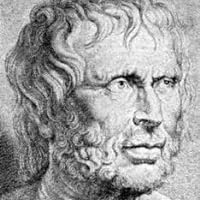
“The liberal arts do not conduct the soul all the way to virtue, but merely set it going in that direction.”
― Moral Letters to Lucilius, Vol. 2
― Moral Letters to Lucilius, Vol. 2

“We have the liberal arts and we have the useful arts.”
― A Portrait of the Artist as a Young Man
― A Portrait of the Artist as a Young Man

“History was a crystal ball that told as much about the future as it did about the past.”
― Pirate Hunters: Treasure, Obsession, and the Search for a Legendary Pirate Ship
― Pirate Hunters: Treasure, Obsession, and the Search for a Legendary Pirate Ship

“He knew more of my intended career than I knew myself. I should be well enough educated for my destiny if I could "hold my own" with average young man in prosperous circumstances.”
― Great Expectations
― Great Expectations
“One night I begged Robin, a scientist by training, to watch Arthur Miller's 'Death of a Salesman' with me on PBS. He lasted about one act, then turned to me in horror: 'This is how you spend your days? Thinking about things like this?' I was ashamed. I could have been learning about string theory or how flowers pollinate themselves.
I think his remark was the beginning of my crisis of faith. Like so many of my generation in graduate school, I had turned to literature as a kind of substitute for formal religion, which no longer fed my soul, or for therapy, which I could not afford.... I became interested in exploring the theory of nonfiction and in writing memoir, a genre that gives us access to that lost Middlemarch of reflection and social commentary.”
― The Barn at the End of the World: The Apprenticeship of a Quaker, Buddhist Shepherd
I think his remark was the beginning of my crisis of faith. Like so many of my generation in graduate school, I had turned to literature as a kind of substitute for formal religion, which no longer fed my soul, or for therapy, which I could not afford.... I became interested in exploring the theory of nonfiction and in writing memoir, a genre that gives us access to that lost Middlemarch of reflection and social commentary.”
― The Barn at the End of the World: The Apprenticeship of a Quaker, Buddhist Shepherd

“When a workman is unceasingly and exclusively engaged in the fabrication of one thing, he ultimately does his work with singular dexterity; but, at the same time, he loses the general faculty of applying his mind to the direction of the work. His every day becomes more of adroit and less industrious; so that it may be said of him, that, in proportion as the workman improves, the man is degraded. Alexis de Tocqueville”
― The Woven Figure: Conservatism and America's Fabric
― The Woven Figure: Conservatism and America's Fabric

“At least part of Pakistan’s quality of education problem stems from its ideological orientation. The goal of education in Pakistan is not to enable critical thinking but to produce skilled professionals capable of applying transferred information instead of being able to think for themselves. To produce soldiers, engineers and doctors indoctrinated with a specifically defined Islamic ideology, the country has ignored liberal arts and social sciences.”
― Reimagining Pakistan: Transforming a Dysfunctional Nuclear State
― Reimagining Pakistan: Transforming a Dysfunctional Nuclear State
“To be equally serious in receiving such communication, one must be not only a responsive but also a responsible listener. You are responsive to the extent that you follow what has been said and note the intention that prompts it. But you also have the responsibility of taking a position. When you take it, it is yours, not the author's. To regard anyone except yourself as responsible for your judgment is to be a slave, not a free man. It is from this fact that the liberal arts acquire their name.
(P. 140)”
― How to Read a Book: The Classic Guide to Intelligent Reading
(P. 140)”
― How to Read a Book: The Classic Guide to Intelligent Reading

“College is about exposing students to many things and creating an aphrodisiac atmosphere so that they might fall in lifelong love with a few.”
―
―

“The great works of art and literature have a lot to say on how to tackle the concrete challenges of living, like how to escape the chains of public opinion, how to cope with grief or how to build loving friendships. Instead of organizing classes around academic concepts — 19th-century French literature — more could be organized around the concrete challenges students will face in the first decade after graduation.”
―
―

“How decisive for the Christian educator, or for any educator of good will, is the revelation that man is made in the image and likeness of the three-Personed God? That is like asking what difference it will make to us if we keep in mind that a human being is made not for the processing of data, but for wisdom; not for the utilitarian satisfaction of appetite, but for love; not for the domination of nature, but for participation in it; not for the autonomy of an isolated self, but for communion.”
―
―

“Lewis was studying literary history with the present and future in mind.”
― The Fellowship: The Literary Lives of the Inklings: J.R.R. Tolkien, C.S. Lewis, Owen Barfield, Charles Williams
― The Fellowship: The Literary Lives of the Inklings: J.R.R. Tolkien, C.S. Lewis, Owen Barfield, Charles Williams

“Mathematics is the language of science-- but it is also the hidden structure behind art… and its basis is the invisible Logos of God.”
― Beauty for Truth's Sake: On the Re-enchantment of Education
― Beauty for Truth's Sake: On the Re-enchantment of Education

“They could address everything else and still not solve the problem. He was always proud of her when she said that. A liberal arts background was a hard thing to overcome, but she was doing great.”
― Drive
― Drive

“Being a good conversationalist is really what a liberal arts education is all about.”
― The Eden Express: A Memoir of Insanity
― The Eden Express: A Memoir of Insanity
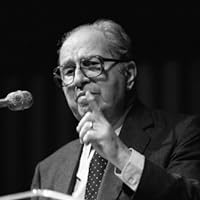
“The ordering of knowledge has changed with the centuries. All knowledge was once ordered in relation to the seven liberal arts— grammar, rhetoric, and logic, the trivium; arithmetic, geometry astronomy, and music, the quadrivium. Medieval encyclopedias reflected this arrangement. Since the universities were arranged according to the same system, and students studied according to it also, the arrangement was useful in education.
[How to Read a Book (1972), P. 180]”
―
[How to Read a Book (1972), P. 180]”
―
“Paglia has written movingly about her days teaching Shakespeare and Sophocles to factory workers at the Sikorsky Aircraft plant outside New Have, so she could hardly endorse a solution that involves ejecting so many working-class students from college life. When you ask the average humanities professor whether too many unready students might not be getting hustled into the matriculation office, he (or, statistically, she) will often wax populist: everyone deserves a chance to contemplate the big questions of life. Such big questions are indeed the stuff of literature and philosophy. But they are also the stuff of church. Religion has historically been the place where classes below the upper middle can air their ideas about meaning and seek to integrate them with a greater tradition. The nice thing about church is, it doesn’t cost $50,000 a year.”
― Boomers: The Men and Women Who Promised Freedom and Delivered Disaster
― Boomers: The Men and Women Who Promised Freedom and Delivered Disaster

“I graduated from college in the spring with a history degree, only to discover that there are no jobs for someone with my specialty. We've all decided being doomed to repeat history is fine, I guess.”
― Not Your Average Hot Guy
― Not Your Average Hot Guy

“Miss Weston bölcsészetet tanult az egyetemen, ami nem a legkedvezőbb fényt veti egy fiatal hölgy gyakorlati érzékére.”
― The Blonde Hurricane
― The Blonde Hurricane
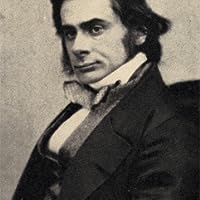
“That man, I think, has had a liberal education who has been so trained in his youth that his body is the ready servant of his will, and does with ease and pleasure all the work that, as a mechanism, it is capable of; whose intellect is a clear, cold, logic engine, with all its parts of equal strength, and in smooth working order; ready, like a steam engine, to be turned to any kind of work, and spin the gossamers as well as force the anchors of the mind; whose mind is stored with a knowledge of the great and fundamental truths of Nature and of the laws of her operations; one who, no stunted ascetic, is full of life and fire, but knows passions are trained to come to heel by a vigorous will, the servant of a tender conscience; who has learned to love all beauty, whether of Nature or of art, to hate all vileness, and to respect others as himself. Such a one and no other, I conceive, has had a liberal education, for he is in harmony with nature. He will make the best of her and she of him.”
― Lay Sermons, Addresses, And Reviews
― Lay Sermons, Addresses, And Reviews
“When making the case for liberal education to low-income students and families, I often point out that there is a long tradition of steering working-class students toward an education in servitude, an education in obedience and docility, an education in not asking questions. The idea that liberal education is only for the already privileged, for the pampered elite, is a way of carrying on this odious tradition. It is a way of putting liberal education out of the reach of the people who would most benefit from it—precisely the people who have historically been denied the tools of political agency. I ask them to take a look at who sends their children to liberal arts colleges and at what liberal arts college graduates go on to do with their “useless” education.”
― Rescuing Socrates: How the Great Books Changed My Life and Why They Matter for a New Generation
― Rescuing Socrates: How the Great Books Changed My Life and Why They Matter for a New Generation
All Quotes
|
My Quotes
|
Add A Quote
Browse By Tag
- Love Quotes 97k
- Life Quotes 75.5k
- Inspirational Quotes 72.5k
- Humor Quotes 43.5k
- Philosophy Quotes 29.5k
- Inspirational Quotes Quotes 27k
- God Quotes 26k
- Truth Quotes 23.5k
- Wisdom Quotes 23.5k
- Romance Quotes 23k
- Poetry Quotes 22k
- Death Quotes 20k
- Happiness Quotes 18.5k
- Life Lessons Quotes 18.5k
- Hope Quotes 18k
- Faith Quotes 18k
- Quotes Quotes 16.5k
- Inspiration Quotes 16.5k
- Spirituality Quotes 15k
- Religion Quotes 15k
- Motivational Quotes 15k
- Writing Quotes 14.5k
- Relationships Quotes 14.5k
- Life Quotes Quotes 14k
- Love Quotes Quotes 13.5k
- Success Quotes 13.5k
- Time Quotes 12.5k
- Motivation Quotes 12k
- Science Quotes 11.5k
- Knowledge Quotes 11k

